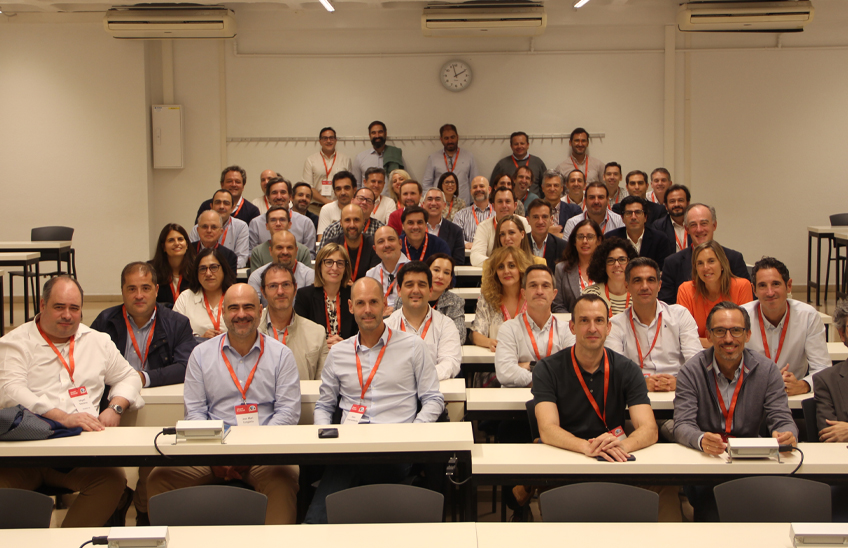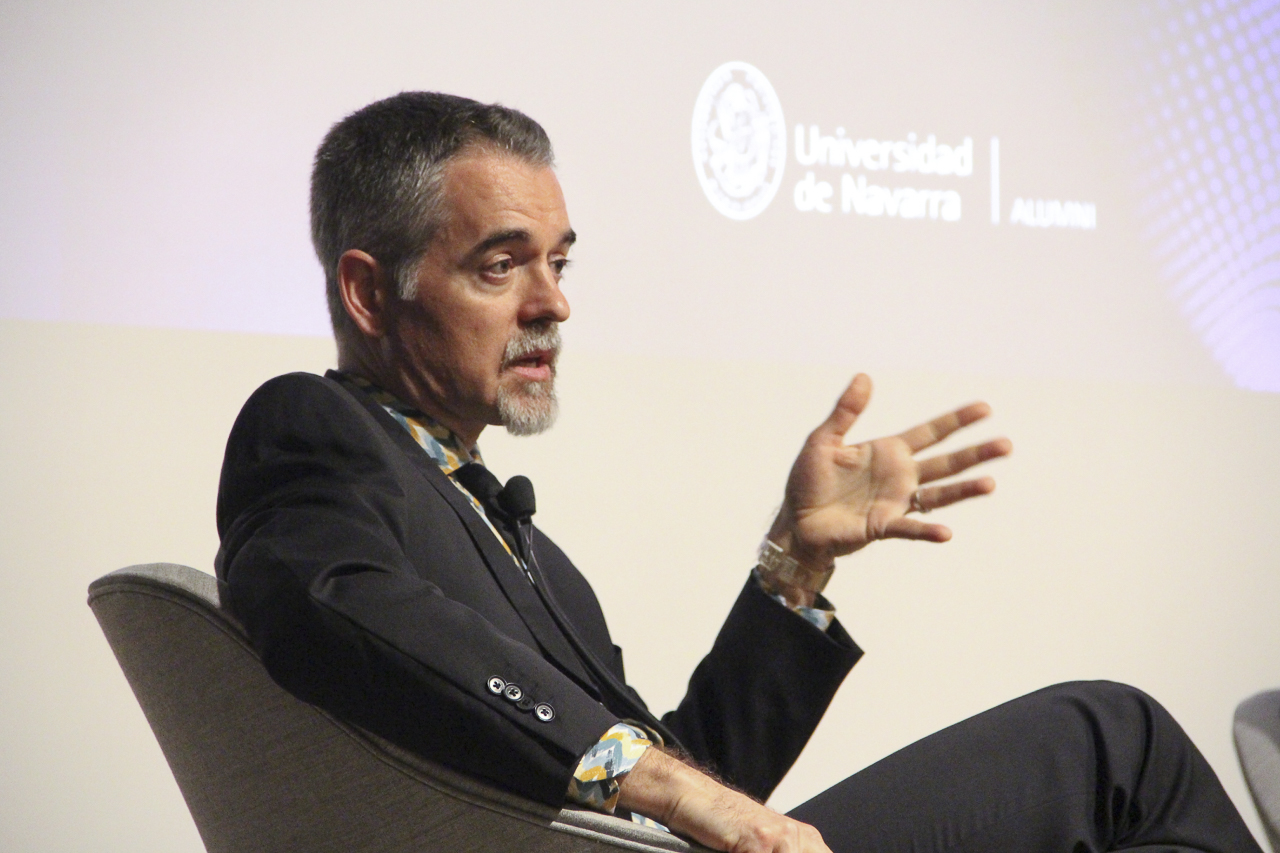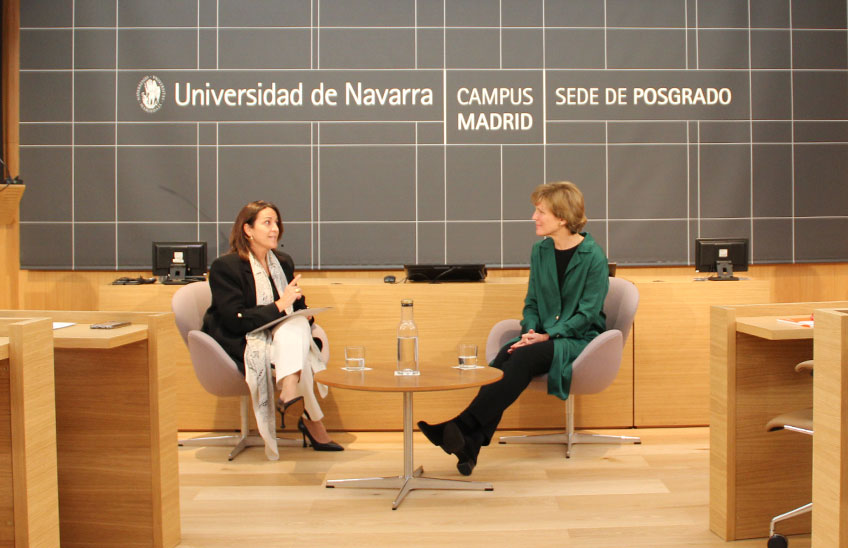Four Tecnun alumni analyze how AI transforms professionals, companies and society
On Thursday, November 12, the Tecnun auditorium hosted the session "A revolutionary stage-IA", in which four alumni reflected on Artificial Intelligence. Ander Arizaga moderated the colloquium, with the presence of Iñigo Elorriaga and Carlos Tomás Moro and the participation by video call of Ane Fabo.

17 | 11 | 2025
The transformation being driven by Artificial Intelligence presents a challenge for any professional, no matter what industry they work in. To help answer some of these unknowns, the Alumni director of TecnunGonzalo Aranguren, organized a colloquium attended by sixty people, mostly alumni of the University of Navarra (residents of Guipúzcoa), together with Tecnun students, professors and researchers.
Four engineers graduated from the School and specialized in innovation, programming and automation took part in it. Ander Arizaga, technology developer and AI driver at Izurun Technology, moderated a conversation in which the director of research and development at Lander Simulation, Iñigo Elorriaga, and the technical manager at Innkia, Carlos Tomás Moro, participated in person. Google's Product Manager, Ane Fabo, also joined by video call.
Change in people
Arizaga opened the colloquium by stating that he now programs between two and five times faster than he did just a year ago. This fact, which surprised some of the attendees, was endorsed by his colleagues on stage, although with slight nuances. Moro, for example, explained how in his particular case, in cybersecurity matters, the total impact is less because human review is needed.
On the other hand, there was consensus on the fact that all professionals, whether they work in programming or in other areas, must make an effort to modify their habits and ways of working. In this sense, Elorriaga defined the most valid employee as one who "has experience and, at the same time, is capable of adapting to a new way of working". He also added that the time to make the change and adopt this new tool is "now when only 5% is appreciated and not when it will be 90%".
The speakers emphasized the importance of developing a critical spirit to deal with a tool, such as AI, which is designed to prove the Username right and often makes mistakes. Moro gave as an example the AI agents that his business has developed and how, "when they leave their lane without human supervision, they start to make mistakes".
Change in organizations
Among the data mentioned, reference was made to the recent report of the Basque Artificial Intelligence Center (BAIC) which states that only "17.4% of Basque organizations use AI", a figure that the three engineers present on stage were struck by the fact that it is still low despite having grown by five percentage points in one year.
Fabo explained how Google has lived through the AI revolution and noted that, in the technology industry, there is a sense that it is impossible to keep up with the constant emergence of new tools. In addition, she talked about how the California-based business has not grown in employees since 2022 and yet they are innovating much more than they were three years ago. For her, the explanation lies in the fact that "large companies have gone from spending money on hiring talent to investing in new technologies" and she also mentions that, along with AI, another reason may be that they now work "more focused".
Elorriaga also showed how at Lander Simulation each simulator is built from scratch and that meant a slow and complex initial process. Now, however, since they are integrating AI solutions, they are managing to "assemble the puzzle" faster and identify valid solutions in the technical specifications of previous projects.
Change in society
In all this progress, many companies are forming AI committees to be able to share different applications, listen to those who have innovative solutions and implement them as a whole team. All four speakers agreed that it is not about striving to be the best, but about sharing improvements to help everyone ( business, industry and society) move forward together.
To conclude, they spoke of the value of the Humanities because, as written request expressed, "language is still our way of working" and shared with the audience the importance of enjoying technology to find innovative and more effective alternatives to the usual problems.





